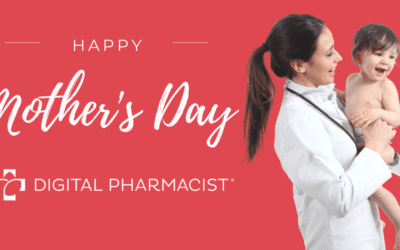Specialty pharmacies are the fastest-growing segment of the pharmaceutical market today. Today we will inform you on how to start a specialty pharmacy and 5 things to consider.
Pharmacy locations receiving specialty accreditation jumped by 280% from 381 in 2015 to 1,069 by the end of 2019, according to a 2020 Drugs Channels Institute report. Research by IQVIA also found that specialty drug spending has nearly doubled since 2009 while traditional medication is on a decline.
What Is a Specialty Pharmacy?
According to the National Association of Specialty Pharmacies (NASP), a specialty pharmacy can be defined as a “state-licensed pharmacy that solely or largely provides only medications for people with serious health conditions requiring complex therapies.” This includes both mail-order and on-site facilities.
In other words, specialty pharmacies, unlike regular pharmacies, focus on treating rare and often life-threatening conditions such as HIV and AIDS, cancer, hormone deficiencies, STIs, and multiple sclerosis. With complex conditions come complex medication, meaning specialty pharmacies often have unique administration, storage, and delivery requirements.
As you explore starting your own specialty pharmacy, consider these five major factors before committing.
Licensing Requirements for Specialty Pharmacy Owners
To become a Certified Speciality Pharmacist (CSP), pharmacists must demonstrate a knowledge of specialty medication, patients, care plans, and interventions.
Qualification requirements include:
- BSPharm or PharmD degree by an accredited college or university
- No felony convictions
- Current, active license in good standing
- 3,000 hours of specialty pharmacy experience within 4 years
- 30 hours’ continuing education in specialty pharmacy within the last 2 years
- Completion of the CSP examination
As a CSP, you can start looking into accreditation requirements for your specialty pharmacy. To qualify, your pharmacy will need to be fully licensed and operated in the US, have a licensed pharmacist-in-charge, and be compliant with all state business regulations and rules.
Currently, there are five major accrediting bodies:
- Accreditation Commission for Health Care (ACHC)
- Utilization Review Accreditation Commission (URAC)
- Center for Pharmacy Practice Accreditation (CPPA)
- The Joint Commission
- National Association of Boards of Pharmacy (NABP)
Each organization has different standards and eligibility requirements, so accreditation can take anywhere from 6 months to 3 years, depending on the certification you choose.
Cost to Start a Specialty Pharmacy
Every business has startup costs and your specialty pharmacy is no different. As you develop a plan, be sure to include estimates of basic pharmacy startup and working costs such as:
- Build-out costs, from your mortgage down payment to interior design
- Initial inventory stock
- Operating expenses to cover daily expenses until you begin to turn a profit
You should also include a plan for financing your specialty pharmacy. Whether that means approaching investors or applying for loans, you’ll need to show proof of upfront investment, good credit, and a long-term plan.
Specialty pharmacies’ complex needs and requirements often incur extra costs that may cut into your profitability. Here are a few to keep in mind as you create your business plan:
- Costs of purchasing specialty drugs
- Ongoing accreditation, certifications, and training for your facility and staff
- Increased DIR fees for specialty drugs
- Specialized software for reporting and pharmacy management
- Storage, handling, and delivery costs
Prioritizing wholesaler relationships and third-party coverage that allows for affordable patient care and favorable pharmacy reimbursements can help you keep costs down long-term.
Time It Takes To Start a Specialty Pharmacy
There are a few different ways to establish a specialty pharmacy: partnership, buying, or building your own. Your time to market will depend on which path you choose:
- Partnership: By partnering with a current specialty pharmacy owner, you buy instant access to resources and staff, offering the shortest time to market.
- Buying: Purchasing an existing business offers all the advantages of established resources and relationships with more investment on your part, but can still ensure you’re up and running quickly.
- Building: Starting a specialty pharmacy from the ground up can be rewarding, but it requires the longest time to market by far. The planning stage to grand opening alone can take several years and you may have to operate for some time before becoming eligible for specialty accreditation.
Location: Do Your Ideal Pharmacy Customers Regularly Travel Through This Area?
Many specialty pharmacies ship medications directly to patients, so it’s important to determine how you plan to operate: online or mail-order only, or at a physical location. When it comes to brick-and-mortar pharmacy businesses, finding a successful location means prioritizing proximity and accessibility.
Proximity to higher-traffic areas, especially near main roads, help keep you top-of-mind, but be sure to research the local competition beforehand. The prescription base of a smaller town may not be able to support multiple specialty pharmacies, while larger cities can offer too many competitors in the same space.
Accessibility is highly important as well. While having a location near a busy intersection may be good for signage visibility, without accessible parking or room for foot traffic or a drive-thru, you may have difficulty drawing potential patients in. Look out for areas with complementary businesses, such as doctor’s offices and other medical facilities so you can take advantage of their traffic and plan potential collaborations down the road.
Specialty Pharmacy IT Requirements
Specialty pharmacies’ complex structure and offerings often call for different tech support than retail pharmacies. From management software to comprehensive data reporting platforms, remember to factor these IT requirements into your business’s financial plan and operating budget:
- Pharmacy management system that meets regulatory needs and handles prescription records and lifecycle and adherence
- Patient management software, including communication platforms like IVR or secure messaging
- Medical benefit verification, billing, and claims submission systems
- Robust reporting solution that tracks patient interactions, touchpoints, and clinical documentation for pharmaceutical manufacturers
Consider an All-In-One Pharmacy Software Solution
In a digital age, connectivity has played a critical role in helping pharmacies serve patients effectively. An all-in-one solution can give you the tools to manage your specialty pharmacy day-to-day, increase business growth, and stand out in the marketplace.
At Digital Pharmacist, we’re committed to transforming the way you do business. Our comprehensive HIPAA-compliant digital engagement suite integrates seamlessly with more than 70 pharmacy management systems. Digital Pharmacist’s all-in-one solution combines cloud-based communication and adherence solutions with digital marketing and management.
To learn more about how we can help you practice at the top of your license, get in touch with us today, or request your free software demo.


